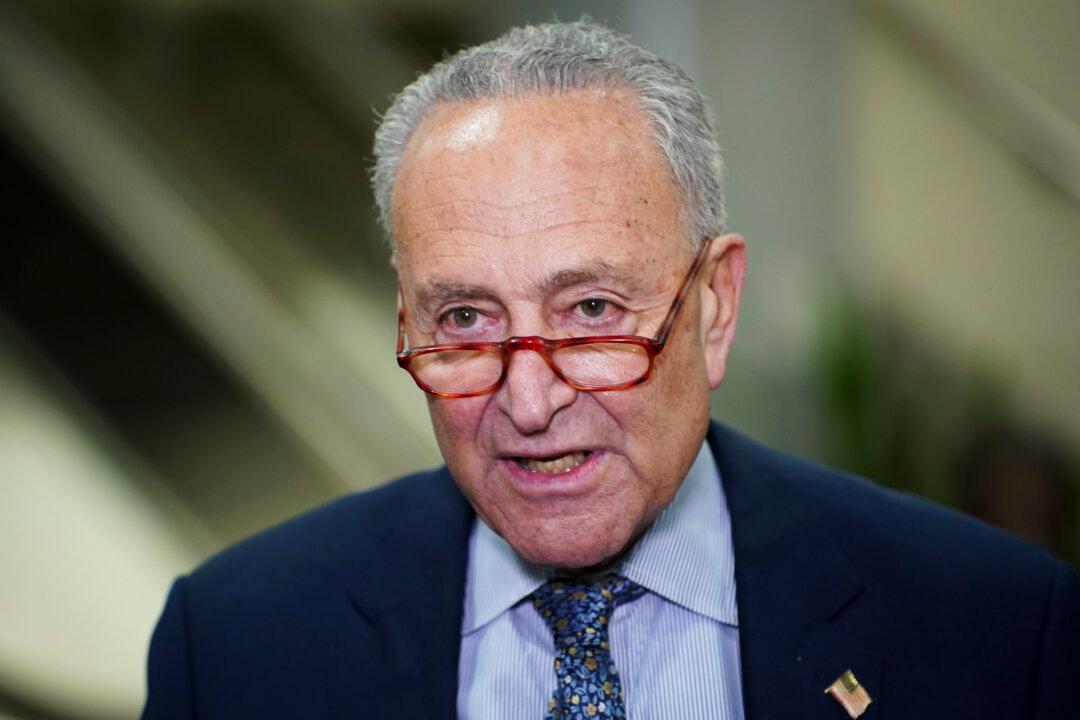Senate Majority Leader Chuck Schumer (D-N.Y.) on Monday took swipes at “hard-line” Republicans while vowing to secure the advancement of three fiscal year 2024 appropriations bills after Sen. Ron Johnson (R-Wis.) blocked a motion for unanimous consent to tie the spending bills into one “minibus” measure.
“I urge my Republican colleagues to resist and reject these hard-line attempts to delay the Senate’s hard work,” the New York Democrat said on the Senate floor. “A great majority of Senators from both parties want to see us move forward.”





